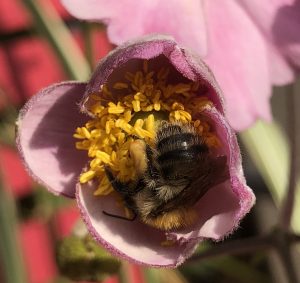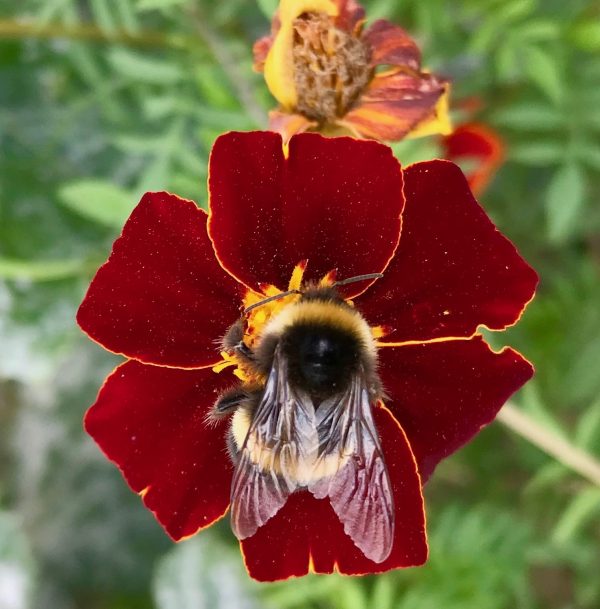Bumblebees ‘hooked’ on neonicotinoids?

Researchers at Imperial College, London (Dr Andres Arce, Dr. Richard Gill et al) have been conducting field trials on the foraging behaviour of bumblebees and the effect of neonicotinoids. As wild bees have a choice on where they feed, the researchers wanted to know if the bees could detect insecticides and learn to avoid them.
The research team tracked bumblebees from 10 colonies over 10 days. Each colony had access to a foraging area in which bees could choose between feeders, which contained sugar or sugar ‘laced’ with a neonicotinoid.
At first, the bees preferred the insecticide-free sugar solution but over the ten day period they favoured the feeders with the sugar with the neonicotinoid insecticide. Even when the positions of the feeders were changed, the bees still sought out the sugar with the insecticide - suggesting they can detect the neonicotinoid; and that they have developed a preference for it.
Such behaviour may be likened to addiction - nicotine targets specific receptors in mammalian nerve cells; it may be the neonicotinoids are targeting receptors in the brains of insects - such as bumblebees - after all, the neonicotinoids are structurally related to nicotine.
Full details available here

Bumblebee foraging © P Symons
Comments are closed for this post.
